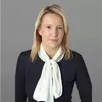Firms providing certain services in Ireland (including lending) from an Irish base will now, unless they are already regulated by Central Bank, have to register with the Central Bank. This new registration requirement arises under the Irish Act which transposes the Fourth Money Laundering Directive (MLD4) into Irish law.
The Criminal Justice (Money Laundering and Terrorist Financing) (Amendment) Act 2018 is now in force in Ireland. Taking effect on 26 November 2018, it transposes the rest of MLD4 into Irish law by amending the existing 2010 Act (the Criminal Justice (Money Laundering and Terrorist Financing) Act 2010).
It has also created a new registration obligation for certain unregulated firms.
It is important to note that the new registration requirement does not create new categories of "designated persons" for the purposes of Irish anti-money laundering (AML) or counter-terrorism financing (CTF) law. The unregulated firms affected by the new registration requirement have already been "designated persons" for AML/CTF purposes for several years, and should already have an AML/CTF framework in place. However, they will now need to register with the Central Bank and confirm compliance with Irish AML/CTF legislation.
REGISTERING WITH THE CENTRAL BANK – WHO IS IN-SCOPE?
To be in-scope, a firm (or an individual or an Irish branch) needs to be offering one or more of the services set out below in Ireland, from an Irish base. These services are referred to by the Central Bank as 'Schedule 2 activities'.
SCHEDULE 2 ACTIVITIES
- Lending (in our view, there is a strong argument that the Central Bank expects loan buyers who are, for the time being, unregulated, to come within point 1)
- Financial leasing
- Payment services as defined in the Payment Services Directive
- Issuing and administering other means of payment (such as travellers' cheques and bankers' drafts) insofar as not covered by 3 above
- Guarantees and commitments
- Trading for own account or for account of customers in (a) money market instruments (cheques, bills, certificates of deposit, etc.), (b) foreign exchange, (c) financial futures and options, (d) exchange and interest-rate instruments, and (e) transferable securities
- Participating in securities issues and providing services relating to such issues
- Advising undertakings on capital structure, industrial strategy and related questions and advice as well as services relating to mergers and the purchase of undertakings
- Money-broking
- Portfolio management and advice
- Safekeeping and administration of securities
- Safe custody services
- Issuing electronic money
So, if a firm is carrying on one or more of the above activities in Ireland, from an Irish base, and is not otherwise authorised by, licensed to carry on activities by, or registered with, the Central Bank, it will need to register certain details with the Central Bank. The term 'firm' as used in this briefing covers individuals, partnerships, bodies corporate, and branches.
ARE THERE EXCEPTIONS?
Yes. A firm will be exempt from the new registration requirement if it comes within any one of the following 3 exemptions:
- It only carries out the Schedule 2 activity listed at 6 above.
- Its customers (if any) are members of the same group as the firm.
- It meets each of the following:
- its annual turnover is < €70,000;
- the total of any single transaction, or series of linked transactions, in relation to its Schedule 2 activities is ≤ €1,000;
- its Schedule 2 activities do not exceed 5% of its total turnover;
- its Schedule 2 activities are directly related to, and ancillary to, its main business activities; and
- it only provides Schedule 2 activities to customers of its main business activities, rather than to the public in general.
HOW DOES A FIRM REGISTER?
The firm should complete the Registration Form, and email it to Schedule2@centralbank.ie.
The Central Bank has published Guidance in relation to the registration process.
WHAT INFORMATION MUST BE PROVIDED?
An in-scope firm will need to confirm the following via the Registration Form:
- its contact details
- its principal business address
- contact details for its lawyers
- its legal status
- its CRO registration number (if applicable)
- its LEI code (if applicable)
- confirmation as to which Schedule 2 activities it carries on
- its business profile (including total number of customers, types of customers to whom it provides Schedule 2 activities, geographic location of customer base, geographic location of business activities, employee numbers, types of distribution channels used, total Schedule 2 activity-related assets, and total Schedule 2 activity-related turnover)
- details of its group structure (if applicable)
- if it's a special purpose entity, whether it mainly engages in securitisations, whether it's a Section 110 company, and whether it already engages in statistical reporting to the Central Bank
The firm will then need to declare that it has an appropriate AML/CTF control framework in place, and that it has taken and will continue to take reasonable steps to ensure that its board members/senior management body; management team; other officers, principals or employees with sufficient seniority to take AML/CTF related decisions; Money Laundering Reporting Officer; Compliance Officer; and owners and beneficial owners are 'fit and proper persons'.
ONGOING OBLIGATIONS?
If the firm:
- offers new, or discontinues existing, Schedule 2 activities;
- materially changes its Schedule 2 activities;
- undergoes an (in)direct change in ownership;
- changes its legal name, trading name, address or principal contact details; or
- undergoes other material changes,
it must notify the Central Bank via email.
WHAT DOES THIS MEAN IN PRACTICE?
In-scope firms have been "designated persons" for AML/CTF purposes for some time. Until now, they were required to comply with the 2010 Act AML/CTF framework. They will now also be required to comply with that framework as amended by the 2018 Act, which transposes MLD4. For further detail on the 2018 Act and MLD4, read our briefing here: AML Update: New Irish Act comes into force.
REFRESHING EXISTING PRACTICES
Obligations to which in-scope "designated persons" have been to subject until now include:
- carrying out customer due diligence (CDD) on their customers, applying simplified or enhanced CDD to certain types of customers, and monitoring customers on an ongoing basis
- identifying their beneficial owners
- adopting and maintaining AML/CTF policies and procedures
- reporting suspicious transactions
- training staff
- keeping records
- carrying out financial sanctions screening
2018 ACT ACTION POINTS
As part of the implementation of the 2018 Act and MLD4, in-scope designated persons will also need to immediately address the following to ensure that their AML/CTF systems and controls are compliant:
- conduct and document a business risk assessment
- refresh internal polices, controls and procedures to reflect the new requirements
- update internal AML training manuals and materials
- carry out customer risk assessments when new products or services are being provided (to new or existing customers)
WHAT SHOULD IN-SCOPE FIRMS DO NOW?
The registration requirement is now in force, and as part of that requirement, in-scope firms will need to confirm to the Central Bank that their AML/CTF framework is compliant with the 2018 Act. In light of this, in-scope firms should take action promptly to update that framework to enable them to meet the registration obligation as soon as possible.
Failure by an in-scope firm to register will constitute an offence. On summary conviction, the penalty would be a class A fine (currently a maximum of €5,000) and/or a 12 month prison term. On conviction on indictment, the penalty would be a fine and/or a 5 year prison term.
While the 2018 Act requires the Central Bank to put in place and maintain a register listing, in respect of each in-scope firm that registers, its name, address, and Schedule 2 activities, it is not immediately clear from the Act whether that register is required to be public, but we expect that the Central Bank will make it publicly available on its website.
The net effect of the new registration requirement is that the Central Bank will have considerably more oversight of firms that provide Schedule 2 activities without requiring a licence but, to date, have not been required to deal with the Central Bank. The Central Bank will now have greater powers to supervise the business activities of those firms. It is inevitable that firms who register with the Central Bank will be subject to AML-focused inspections in due course.
This article contains a general summary of developments and is not a complete or definitive statement of the law. Specific legal advice should be obtained where appropriate.






